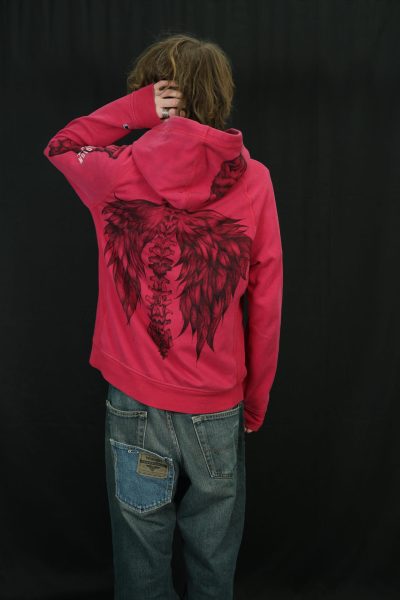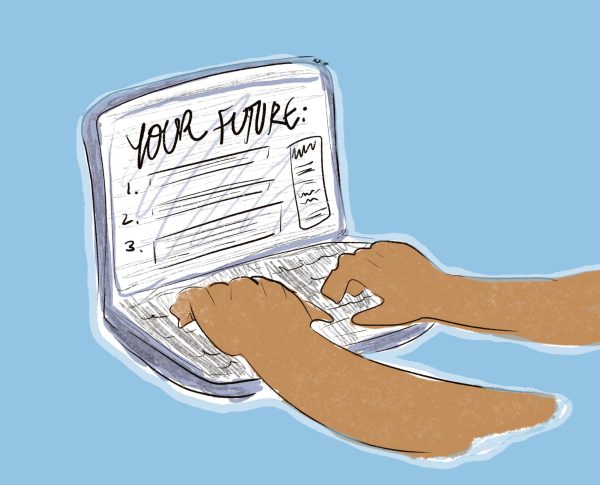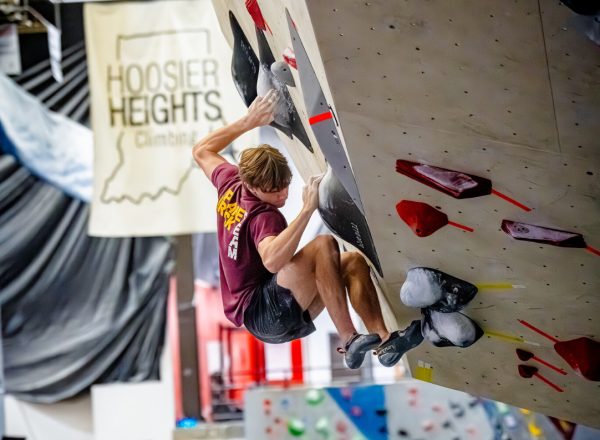The Gay Voice
Eight-year-old Jack Cassell replayed the video again on his computer as he stared perplexed at the screen.
“That’s not what my voice sounds like in my head,” he insisted. “This is a weird camera, it’s making my voice sound weird.”
It wasn’t. His voice was high. “My little gay voice is immortalized forever on Youtube,” Cassell recalled. Now 17, Cassell is openly gay and has been for three years.
Cassell wasn’t alone. Tim Gunn, a famous TV personality admitted that he had similar feelings. “I’m used to hearing my voice now, when I would first hear it, I quite frankly would be appalled,” Gunn said. “It’s an incredibly stunning rude awakening.”
A “gay voice” isn’t a new concept to the majority of Americans. In fact, a study done by the University of Toronto in 2002 revealed that a study group of 47 people were able to distinguish homosexual males from heterosexual males in 62 percent of the cases.
The same study suggested that this may be due to gay men subconsciously emulating the voices of females in their life, potentially at a young age.
“I know that when I was growing up I didn’t have a lot of guy friends — [mostly] because I was scared and intimidated by them — so I mostly had female friends. I [also] grew up in a house with two older sisters,” Cassell said. “I probably [spoke] how they speak.”
Cassell hit the nail right on the head. Professor Benjamin Munson, a speech scientist at the University of Minnesota offered a similar explanation: “Everyone of us is presented with lots and lots of models of what language should sound like. So we hear men, we hear women, we hear kids our own age, we hear adults, we hear older adults. And in all of these interactions, we have different opportunities to emulate different aspects of those people’s speech.”
Or, when gay men spend more time with more effeminate people, they reticulate those same motions.
The explanation is harmless, so why is it perceived as such an unacceptable trait by a chunk of the modern society? According to Pew Research Center, only 55 percent of the nation openly supports gay marriage.
The answer is misogyny. To sound gay is to sound like a woman, and in the culture that has been built up today, hypermasculinity is the star of the show. It’s almost as if a test, that proving oneself to be ‘not-not manly’ is essential for any gay man. To be feminine is to be weaker and to be worse.
Most of the time, the concept isn’t even thought that far into. It’s just, don’t be a f**.
“[I was in] eighth grade and we were all playing cards,” Cassell said. “I forget what it was, but I started laughing really hard because someone said something, and then a straight boy said ‘Dude, you sound like a f**’.”
Because of this, it’s no mystery as to why gay men themselves don’t like their own ‘gay voice’ stereotype.
“I’m embarrassed to say this, but sometimes somebody will say, ‘I didn’t know you were gay.’ It’s like, why does that make me feel good?” said David Sedaris, an American humorist frequently featured on NPR. “I hate myself for thinking that.”
Why does it make homosexuals feel better to hear this? Sedaris certainly isn’t alone, both Cassell and other secondary sources confirmed similar interactions. One theory is provided by Dan Savage, an LGBT activist. “A lot of gay men are self-conscious about sounding gay, because we were persecuted for that when we were young. When you’re young and closeted and trying to pass, you police yourself for evidence that might betray you, and it’s how you walk and how you talk.”
For readers not familiar with some of the gay slang used, ‘closeted’ implies they’re not yet openly gay to the community, where ‘trying to pass’ signifies trying to pass as a heterosexual person.
So does a gay voice exist? Yes. Although it doesn’t mean every homosexual man’s voice under the sun will be in the treble clef, it does seem to be a frequent pattern. And not surprisingly, that’s how stereotypes happen.
But as a final take away, Cassell thinks a bigger point is in store. “I feel as though one thing we need to recognize, is there such a thing as a straight voice? Cassell asked. “Is that the default? There are definitely straight people who have higher pitched voices. That’s something we need to think about.”









